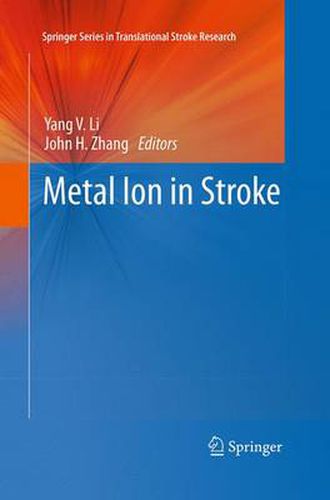Readings Newsletter
Become a Readings Member to make your shopping experience even easier.
Sign in or sign up for free!
You’re not far away from qualifying for FREE standard shipping within Australia
You’ve qualified for FREE standard shipping within Australia
The cart is loading…






This title is printed to order. This book may have been self-published. If so, we cannot guarantee the quality of the content. In the main most books will have gone through the editing process however some may not. We therefore suggest that you be aware of this before ordering this book. If in doubt check either the author or publisher’s details as we are unable to accept any returns unless they are faulty. Please contact us if you have any questions.
Stroke is a major cause of death and disability in the U.S. and worldwide. A variety of pathophysiologic episodes or cellular medications occur following a stroke, and knowledge of these aftermath events can lead to potential therapeutic strategies that may reverse or attenuate stroke injury. Cellular events that occur following stroke include the excessive releases of excitatory amino acids, alterations in the genomic responses, mitochondrial injury producing reactive oxygen and nitrogen species (ROS), and secondary injury, often in the setting of reperfusion.
$9.00 standard shipping within Australia
FREE standard shipping within Australia for orders over $100.00
Express & International shipping calculated at checkout
This title is printed to order. This book may have been self-published. If so, we cannot guarantee the quality of the content. In the main most books will have gone through the editing process however some may not. We therefore suggest that you be aware of this before ordering this book. If in doubt check either the author or publisher’s details as we are unable to accept any returns unless they are faulty. Please contact us if you have any questions.
Stroke is a major cause of death and disability in the U.S. and worldwide. A variety of pathophysiologic episodes or cellular medications occur following a stroke, and knowledge of these aftermath events can lead to potential therapeutic strategies that may reverse or attenuate stroke injury. Cellular events that occur following stroke include the excessive releases of excitatory amino acids, alterations in the genomic responses, mitochondrial injury producing reactive oxygen and nitrogen species (ROS), and secondary injury, often in the setting of reperfusion.